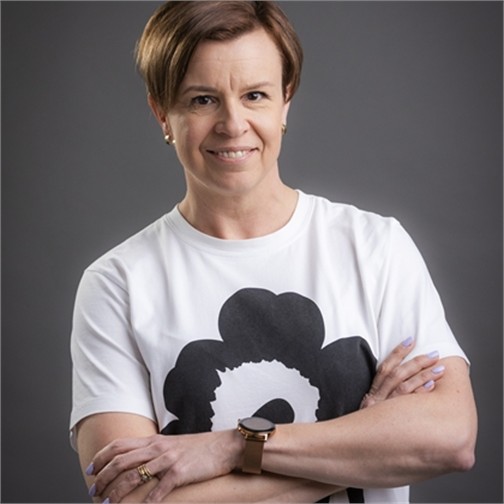Sustainable development and green guidance have recently become cross-cutting aspects of guidance and career counselling. Thus, the principles of sustainable development must also be visible in these professionals’ practices. Despite its growing importance, green guidance has not been extensively studied, and more research is urgently needed to understand the phenomenon. The objective of this article focuses on sustainable development and green guidance from the perspective of guidance counsellor students. The main aim is to understand guidance counsellor students’ perceptions of green guidance and sustainable development in guidance and career counselling. A further objective is to deepen the understanding of the role and significance of green guidance in counselling practice.
Sustainability Meta-Skills in Guidance and Career Counselling
As emphasised by the Finnish National Board of Education (Opetushallitus, 2019) and the European Commission’s (2022) GreenComps framework, sustainability meta-skills hold immense potential for the future. These skills are not just competencies but a beacon of hope and empowerment, guiding us towards a more sustainable world. As Asikainen and Tapani (2021) suggest, the pedagogical skills to be developed in vocational education, such as the internalisation of sustainability thinking, can strengthen transformative learning. This underscores the pivotal and significant role of educators, guidance, and career counsellors in shaping the professions and jobs that will emerge from the digital and green transitions.
Individual learning of meta-skills requires learning that recognises and considers transformative sustainability values (Mezirow, 1978). In a transformative learning process, the individual’s thinking, feelings, and actions are consciously subject to critical reflection, under which the perspectives of meaning constructed in educational socialization are put to the test. Transformation takes the form of a renewed way of thinking, which allows for the reception of new influences, a richer reflection on alternatives, and a continuous examination of the perspectives of meaning that guide action. This challenges new thinking in the field of educational and career guidance, specifically in the areas of sustainable development and green guidance.
There is a dearth of research in Finland on sustainable development in guidance and career counselling, although this area of activity has gained increasing societal weight. Existing international research has focused on the green guidance approach (Plant, 2015, 2020) and remains on a theoretical rather than practical level.
The theoretical background explaining green guidance in this article is based on Plant’s (2015, 2020) principles of green guidance and Packer’s (2019) light green and dark green approaches. They both emphasize the importance and active role of guidance in creating sustainable training and educational opportunities with a positive impact. Packer’s model is based on Watts’s (1996) and Dobson’s (2007) four-dimensional division of approaches to environmental sustainability. The division distinguishes between Light Green and Dark Green approaches while differentiating between Radical, Progressive, Conservative, and Liberal approaches.
Exploring Guidance Counsellor Students’ Perceptions of Green Guidance
This article’s approach maps the perceptions of 13 guidance counsellor students on green guidance. The written data produced by students was gathered as part of a Guidance Counsellor education course assignment in April and May 2024. We examined the data using qualitative content analysis (Silverman, 2000; Tuomi & Sarajärvi, 2002). First, we analysed the data according to the research questions. Secondly, we reflected on the results of Packer’s approaches to environmental sustainability presented earlier.
As a result, we found that the phenomenon of sustainable development is well-known; however, the term green guidance remains somewhat unclear. The transition to the green economy was seen as a process that includes ecological, social, economic, and cultural sustainability. Ecological awareness was considered essential in teaching and guidance, especially for future change.
The significance of sustainable development can be seen as a process of ecological acts. However, the respondents could not specify the importance of green guidance. The aspects of ethical and moral choices were raised as a challenge. The age gap between generations was seen as an obstacle. Thus, new and transformative guidance is in demand. Overall, keeping up hope for a better life and a more sustainable future was a key factor among the respondents.
There is a high deviation among respondents in putting sustainable development and green guidance into practice in counselling. The respondents stated that their students received a significant variation of guidance. The given guidance reflected the values of teachers and guidance counsellors. Thus, there was a lack of equality in guidance and no common understanding of the objectives and tools needed to obtain the best results. The respondents felt that green guidance needs open dialogue among the participants. They should receive optimal knowledge of various fields regarding the world of work and the counsellors’ impact on sustainable development in the future. During the guidance dialogue, the counsellors should encourage and promote sustainable development and green guidance values. The ethical aspects of green guidance are becoming more critical.
According to Packer’s (2019) four approaches to environmental sustainability, there were no radical approaches in guidance. A few of the respondents’ answers could be described as representing the progressive approach. However, the more liberal approach was prevalent among the respondents, as many of them based their guidance on using dialogue as a significant tool. Furthermore, the conservative approach could be detected in some respondents’ replies.
Sustainable development and green guidance are often seen as a narrow set of various ecological acts, such as recycling or energy savings. Green guidance should be understood and presented as a larger phenomenon, one of the major parts of successful future-oriented guidance and career counselling. There is a high demand for new thinking in green guidance, and the necessity of providing new methods and tools for guidance counsellors.
This article utilised the help of AI tools to create a synopsis for publication purposes.
References
Asikainen, E. & Tapani, A. (2021). Exploring the Connections of Education for Sustainable Development and Entrepreneurial Education – A Case Study of Vocational Teacher Education in Finland. Sustainability, 13, 11887. https://doi.org/10.3390/su132111887
European Commission, Joint Research Centre. (2022). GreenComp, the European sustainability competence framework. Publications Office of the European Union. https://data.europa.eu/doi/10.2760/13286
Dobson, A. (2007). Green political thought. (4th edition). Routledge.
Mezirow, J. (1978). Education for Perspective Transformation: Women’s Re-entry Programs in Community Colleges. Teachers College, Columbia University.
Opetushallitus (2019). Osaaminen 2035. Osaamisen ennakointifoorumin ensimmäisiä ennakointituloksia. Raportit ja selvitykset 2019:3. https://www.oph.fi/sites/default/files/documents/osaaminen_2035.pdf
Packer, R. (2019). Greening HE careers education and guidance? An investigation into the perspectives and experiences of career development practitioners from English universities [Master’s Thesis]. University of Derby.
Plant, P. (2015). Green guidance: guidance for the future. REOP – Revista Española De Orientación Y Psicopedagogía, 26(1), 115–123. https://doi.org/10.5944/reop.vol.26.num.1.2015.14346
Plant, P. (2020). Paradigms under Pressure: Green Guidance. Nordic Journal of Transitions, Careers and Guidance, 1(1), 1–9. https://doi.org/10.16993/njtcg.25
Silverman, D. (2000). Doing qualitative research. A practical handbook. Sage Publications.
Tuomi, J. & Sarajärvi, A. (2002). Laadullinen tutkimus ja sisällönanalyysi. Tammi.
Watts, A. G. (1996). Socio-political ideologies in guidance. In A. G. Watts, B. Law, J. Killeen, J. Kidd & R. Hawthorn (Eds.), Rethinking careers education and guidance (pp. 225–233). Routledge.
Authors



